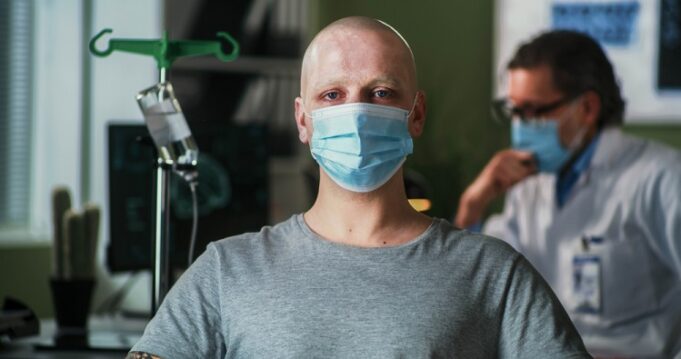Chemotherapy has been an integral part of the cancer treatment protocol for decades. The therapy relies on cytotoxic (anti-cancer) drugs to destroy cancer cells. According to statistics, about 10% to 15% of cancer patients experience a complete remission with this line of treatment, and some live for a long time after it.
While chemotherapy has life-saving potential, it also has several side effects as a part of the package. Hair loss is the most common and traumatic among them, with nearly 65% of patients undergoing classic chemotherapy suffering from alopecia. At the same time, not all drugs cause hair loss, and the severity of thinning depends on several factors.
As a patient, you need to understand the connection between chemotherapy and hair loss to have realistic expectations from your treatment regimen. Here are a few facts regarding the causes of hair loss during or after chemo and the drug culprits leading to it.
Table of Contents
Why Chemotherapy Causes Hair Loss
Although chemo drugs can destroy cancer cells, they also damage healthy cells along the way. These include cells in the digestive tract, bone marrow, and hair follicles, leading to adverse effects such as nausea, anemia, and hair loss respectively.
Hair follicles have cells called keratinocytes, which divide much faster than cancer cells. Additionally, they have a rich blood supply delivering chemo agents to them quickly. The fast metabolism actually works against them, causing oxidative stress. Chemo drugs double the oxidative stress to the point of killing the cell.
The possibility and severity of hair loss for a chemo patient depends on the following factors:
- The type of chemo drug
- The combination of drugs used in the chemo regimen
- Drug delivery method (intravenous drugs tend to cause more hair loss than their oral counterparts)
- Drug dosage
- Individual susceptibility
Chemotherapy Drugs That Induce Hair Loss
Not all chemo drugs are the same when it comes to hair loss. For this reason, some cancer survivors retain their hair despite the treatment regimen. The medicines with the highest risk of causing significant hair thinning and loss in most patients include:
- Taxotere
- Taxol
- Cytoxan or Neosar
- Ifex
- Camptosar
- Vepesid or Toposar
- Adriamycin or Doxil
- Alocrest or Navelbine
- Marqibo or Vincasar
- Ellence
- Efudex
Taxotere is in the news for more reasons beyond hair loss. The Taxotere lawsuit alleges that the drug can cause severe eye damage, including vision loss. As of May 2023, there were nearly 197 eye damage lawsuits and 10,607 lawsuits for hair loss in Louisiana federal court.
According to TorHoerman Law, the drug may cause side effects such as damaged and scarred tear ducts (canalicular stenosis), excessive tearing (epiphora), severe eye pain, and partial/permanent vision loss.
Dealing with cancer is traumatic enough, and these drug reactions can worsen the situation for cancer patients. They deserve compensation for the additional suffering and must seek it.
Ways to Manage Chemo-Induced Hair Loss
If you are on one of these chemo drugs, you can expect hair loss to set in around the second infusion. It happens within a month or two of starting treatment. Fortunately, many patients experience re-growth within three months of concluding chemo. But your hair texture may vary, with most people getting chemo curls. Here are a few ways to manage chemo-induced hair loss.
Be Gentle
Treat your hair gently while going through the chemo regimen and experiencing re-growth later. Stick to a wide-tooth comb or a hairbrush with soft bristles to minimize breakage. Also, avoid heat damage by skipping hair dryers and irons. Steer clear of chemical products and clips as they may hurt your scalp. Wash your hair with a gentle shampoo and dry it with a soft towel.
Protect Your Scalp
Hair thinning or loss exposes your scalp, requiring additional protection for it. Using lotions and conditioners is an ideal solution for an itchy or tender scalp. Avoid direct sun exposure by wearing a hat or a comfortable scarf outdoors. Use sunscreen for extra care.
Explore Options
While hair loss during chemo is a reality patients have to accept, there are options to explore. You can cut your hair short or even choose to shave your head to deal with the feelings. If you plan to wear a wig, buy it before losing all your hair to get a good match. Try making a fashion statement with a comfortable scarf, turban, or hat.
Share Your Feelings
Hair loss is traumatic for cancer patients undergoing chemotherapy. Feelings such as anger, depression, and embarrassment are natural. You shouldn’t bottle up because it is unhealthy. Talking openly and sharing your feelings honestly with your loved ones. You may even seek counseling therapy or join a support group to deal with the negativity.
Conclusion
Hair loss is a harsh reality for cancer patients going through chemotherapy. But it is also a small price to pay for saving your life. You can check the drug options with your provider and seek the best possible alternative with minimal side effects. Hair loss may still happen, so you must have a plan to handle your emotions and deal with it.










